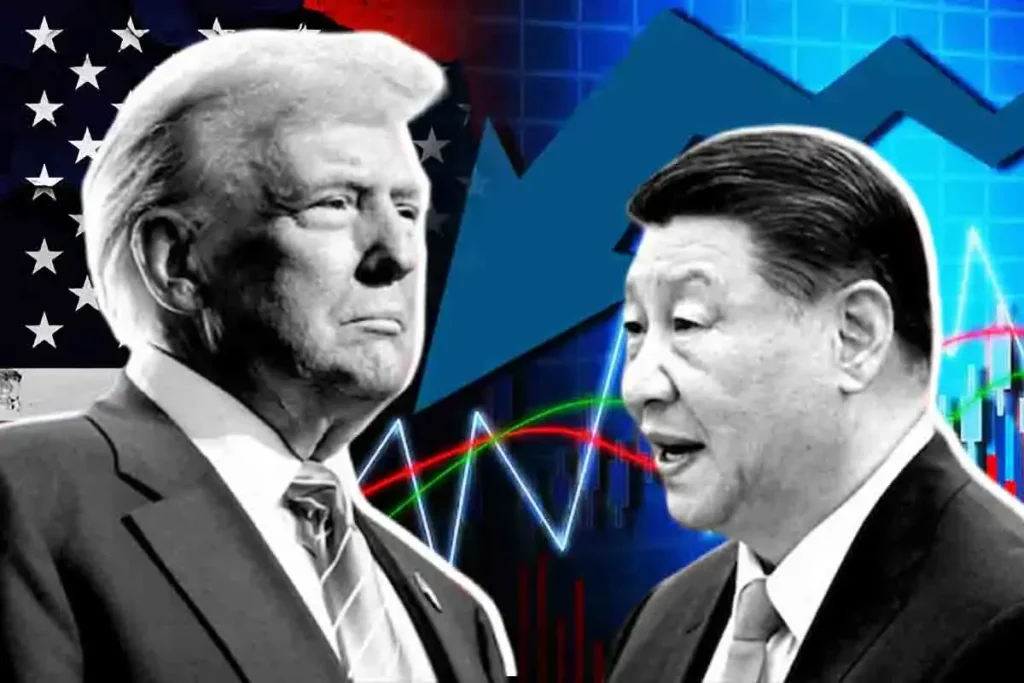The Impact of U.S. Tariff Pauses on Global Trade and Cryptocurrency Markets
The U.S. government has recently extended its moratorium on certain tariffs imposed on Chinese goods until August 31, 2025. This decision coincides with ongoing trade negotiations between the Trump administration and key global trading partners, generating significant interest from both traditional financial sectors and cryptocurrency markets. The tariff pause is expected to influence global market sentiment, affecting investor behavior and the dynamics of international trade.
Legal Challenges to Trump Tariff Authority
Two pivotal court rulings have emerged, challenging the legal authority of the Trump administration to impose tariffs. On May 28, the U.S. Court of International Trade ruled against tariffs targeting imports from China, Mexico, and Canada, stating that they lacked justification under current laws. The following day, a U.S. District Court in Washington, D.C., ruled in favor of two toy companies, asserting that the tariffs would harm these businesses. Both courts determined that the International Emergency Economic Powers Act (IEEPA) does not permit the extensive use of tariffs in trade policy. Despite these setbacks, the Trump administration swiftly appealed the rulings. A federal appeals court allowed the tariffs to remain while the appeals are ongoing, and the administration is now seeking a stay of the second ruling, citing potential risks to trade negotiations.
Deadline for Trade Negotiations
In light of the ongoing legal disputes, the Trump administration has set a pressing deadline of July 8, 2025, to finalize significant trade agreements. President Trump has urged foreign governments to present their best offers. According to the White House, if no agreement is reached by this deadline, the previously paused tariffs will be reinstated. A spokesperson emphasized that the pause serves as a strategic maneuver, allowing negotiations to progress without immediate tariff pressures. The administration maintains that tariffs remain an essential tool for enforcing fair trade practices, especially as they aim to balance trade and address issues like drug trafficking.
Cryptocurrency Market Reactions
The extension of the tariff pause has sparked notable reactions in the cryptocurrency market. Bitcoin, which had previously fallen to $103,000, surged past $105,000 following the announcement. This response reflects a broader optimism among investors, who appear to view the tariff pause as a signal of reduced global trade tensions. In fact, Bitcoin’s price had previously surged from $74,500 to over $82,000 during the Trump administration’s announcement of a 90-day pause in April. As sentiment improved, Bitcoin reached a new high of nearly $112,000 in May. Other cryptocurrencies followed suit, with Ethereum experiencing significant gains, rising over 10% during this same time frame.
Economic Concerns Over Tariffs
While the administration argues that tariffs can serve as leverage in negotiations, several business groups have voiced concerns regarding their long-term implications. Critics warn that higher costs on imported goods could disrupt supply chains and lead to increased consumer prices. Notably, financial commentator Peter Schiff expressed apprehension over the potential negative impact of tariffs on downstream manufacturers. He stated that while these tariffs may benefit certain domestic producers, they inevitably lead to job losses across the manufacturing sector, where businesses rely heavily on imported materials. Increased input costs could severely undermine their competitiveness in the global market.
The Broader Implications of Tariff Policies
The ongoing situation surrounding U.S. tariffs and their impact on global trade should serve as a crucial point of reflection for policymakers and investors alike. The courts’ rulings against the Trump administration’s authority to impose broad tariffs indicate a growing recognition of the legal limitations of such economic tools. Furthermore, the deadline for trade negotiations acts as a double-edged sword, promising a resolution but also amplifying the stakes for both domestic producers and international partners. The uncertainty surrounding trade policies continues to reverberate through financial markets, including the rapidly evolving cryptocurrency landscape.
In conclusion, the U.S. government’s tariff pause has significant implications for both global trade dynamics and the cryptocurrency markets. As stakeholders navigate these developments, careful monitoring of legal proceedings and trade negotiations will be essential. The interplay between tariffs, trade relations, and market reactions underscores the complexity of international economics in a rapidly changing world.
This article provides a comprehensive overview of the current state of U.S. tariffs, their legal challenges, and their effects on global trade and cryptocurrency markets, highlighting the importance of ongoing developments in this arena.


